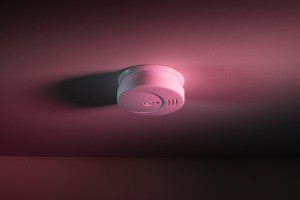Because it's colorless and odorless, poisonous carbon monoxide (CO) gas can kill without warning. CO detectors are vital to protect the health of your family, but just like any important part of your home's safety, these detectors can malfunction from time to time, and their batteries can run low. Because of this, testing carbon monoxide detectors is an important step in protecting your Massachusetts home and your family's safety.
 Why Testing Is Important
Why Testing Is Important
Why should you test the detectors? Every year, 170 people, on average, die due to carbon monoxide poisoning. This poisoning is entirely preventable, but only with a working alarm to alert your family in time to escape the home. Testing ensures you have an alarm that works as it should.
How to Test Carbon Monoxide Detectors
Testing carbon monoxide detectors isn't difficult. The detector will have a test button. Find it, then press and hold it for a few seconds. You should hear a beeping sound if the detector is working properly. If it fails the test, change the batteries and repeat the process. If it still fails, replace the alarm with a new one.
How Often Should I Test CO Detectors?
Testing carbon monoxide detectors once a month is a good idea. Plan to change the batteries every six months to ensure you always have strong batteries in your device.
Carbon monoxide can come from your furnace and other fuel-burning appliances, so you can further protect your family by keeping your home's equipment properly maintained. Rodenhiser Plumbing, Heating & Air Conditioning can help with this. Contact Rodenhiser Plumbing, Heating & Air Conditioning to schedule HVAC maintenance or learn more about testing carbon monoxide detectors.
Image via Shutterstock.com